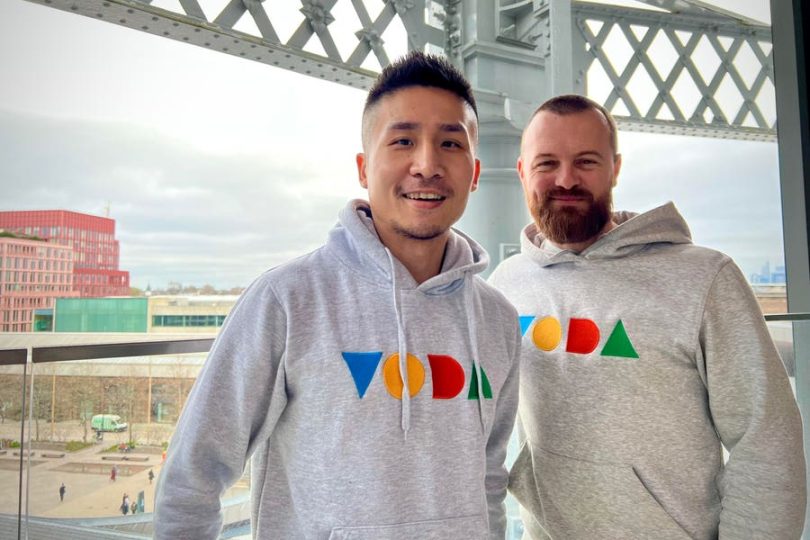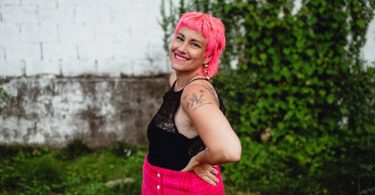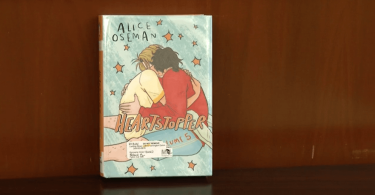Growing up gay anywhere can be challenging, let alone in a traditionally conservative society like Singapore. That’s even worse when you work out your sexuality from a young age – even if you don’t know the word for it.
This is all amplified when all the adults around you talk about gay as a shameful thing – it becomes internalized homophobia or gay shame. It’s a concept many therapists, books and now, apps have popped out of the woodwork of the last couple of decades to help people handle.
They’re allowing gay men who are growing up into adulthood to recognize the gay shame and turn it on its head. That’s why Jaron Soh founded Voda, an LGBTQ mental health app. It’s one of a couple of queer dedicated Headspace or Calm-style apps.
Soh started Voda, however, because growing up, Singapore left him as an adult, seeking therapy for his gay shame.
“My internalized homophobia manifested in numerous ways,” Soh tells me. “I’d often police myself and almost watch myself from a third-person point-of-view in my mind’s eye, and constantly second-guessed if the way I moved, the way I spoke or something that I said would inevitably out me to everyone else around me.”
But it’s broader than that; it can look like wearing colors that ‘seem gay’, trying to change the sound of your voice, the way you walk. Indeed, projecting this worry about yourself onto others and being critical of ‘femme’ blokes.
“I felt unworthy, unlovable, and that who I was was deficient. Many queer people struggle with a similar journey in their adolescence.”
But when Soh sought therapy for this, he found most group sessions and indeed even one-on-one sessions would miss the point. They were lacking something crucial – a queer perspective.
Ending a double life, and turning shame into a drive for change
After moving to London in his twenties, Soh was leading a double life. But, for the first time, he was able to be out, and for the first time, he felt able to live his life without having to watch over his shoulder.
“In Singapore, I was constantly worried and shifty around family because I was worried about texts from queer friends showing up on my phone or being seen out in public in the city by family with my queer friends. I was already out to both my sister then, but not my parents, as I could not fathom disappointing them.”
Moving to the city allowed him to take the first of many steps in releasing his gay shame. Headed out on the scene, he was out and loud. But was still not able to be completely out in a professional capacity. Indeed, his concerns at the time ring true of a wider context that remains in investing now, a hesitancy to be open about your sexuality for fear of how those prejudices may change decisions:
“Soon after graduating from LSE, I started my first venture-backed startup. It was a typical software company and very different from the LGBTQ mental health startup I’m building right now. It’d have been unthinkable to me to be speaking publicly or working publicly on LGBTQ issues, as I’d have to worry about how my parents might perceive me.”
It also speaks to a broader, non-Western cultural context, which is key in Soh’s journey. Coming out is often explicitly linked with the idea you could or will be letting the family down – that you’re bringing shame to the family.
Yet, like many of us who, during the Covid-19 pandemic, reexamined our lives and livelihoods – tired of hiding who he was, Soh came out to his parents.
“My coming out is a bit less traditional; there was no one big moment or announcement. One day, I changed my WhatsApp profile photo to me and my partner at the time holding one another, smiling at the camera. This set off a series of events that culminated in my Mom asking, “Is this your boyfriend?”
Despite preparing for the worst-case scenario, his family’s reaction was more accepting than he had braced himself for. It also meant he could focus on a new livelihood too.
What therapy for gay shame can help with
For Soh, Therapy helped him understand how my past showed up in my present. How emotional history affected present relationships. But it also helped him see similar patterns in queer friends from dysfunctional relationships, substance misuse, or other unhealthy coping mechanisms. The list, of course, doesn’t end there, indeed even shows up in some gay men in obbsessions with Britney, Madonna and Lady Gaga.
However, after therapy and using apps to support his growth, he found that they only addressed surface-level issues.
“For example, many apps simply teach you Cognitive Behavioral Therapy (CBT). While it’s effective for certain issues, it often doesn’t delve deep enough. Especially into the specific challenges faced by the LGBTQ community.”
Soh explains that while CBT helps you identify and change negative thought patterns. That it is indeed valuable to alter behavioral and emotional responses. However, it doesn’t always address the root causes of distress. Ones that are intertwined with systemic issues like homophobia, transphobia, and societal stigma.
Enter Voda – the same approach, but with a queer context that applies lessons from internalized homophobia or transphobia, navigating queer relationships, and understanding gender identity in a world that largely adheres to a binary view.
It’s an approach that wasn’t that easy to get hold of until now. It’s also something its users are already finding helpful, and the app has already picked up awards for.
For example, Marty Davies, founder of Trans+ History Week, says unlike other similar apps – Voda has trans-specific guided therapy tapes that feel like “I’m being spoken to by another trans person, which makes me relax into it much easier.”
“This is the best thing about the app. Other apps I’ve used don’t have specific content to deal with these feelings. Dysphoria can often be the root cause of why I might need to reach for an app like this in the first place so it needs to be catered for.”
Therapy is a useful approach to take to help people resolve their past. But for many LGBTQ people, problems are not simply individual. They are what Soh calls “manifestations of broader societal injustices and stigma.”
For him, the app is not just aiming to be a challenge to others in the field – including other queer-dedicated ones. He also hopes any individual support they provide sits within a wider ecosystem of social justice:
“I hope it gives people the tools to cope and self-regulate, but we also play a part in addressing the systemic issues that are causing LGBTQ mental harm in the first place.”







